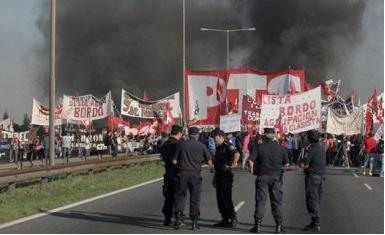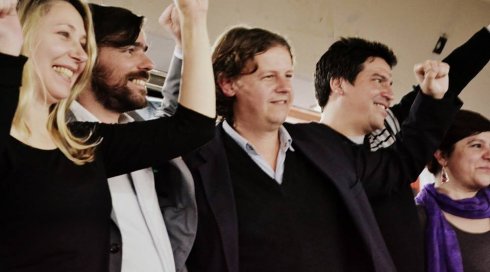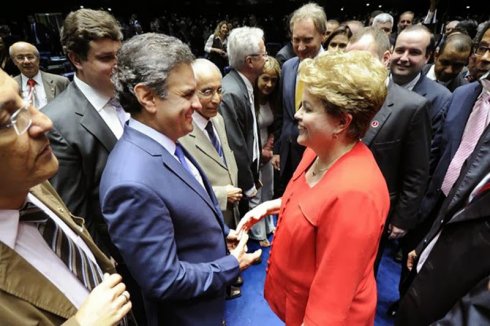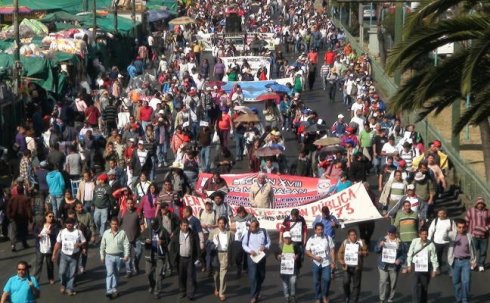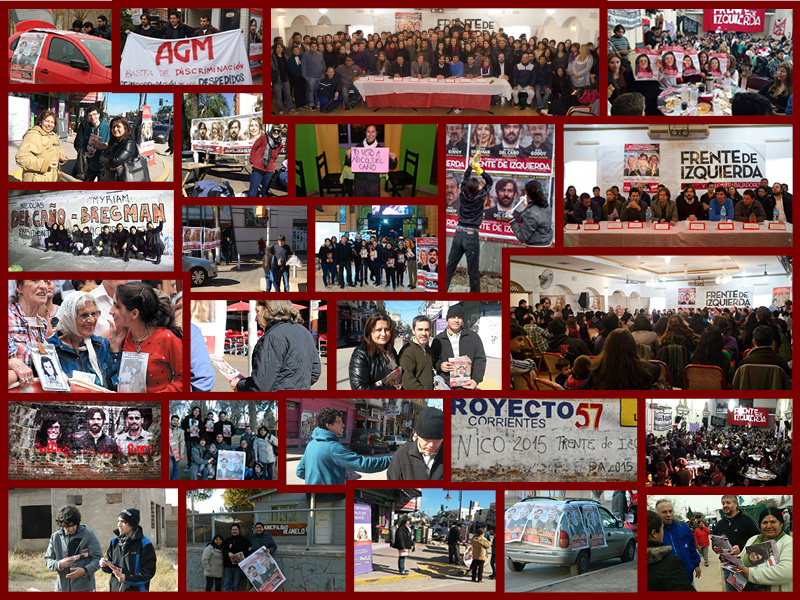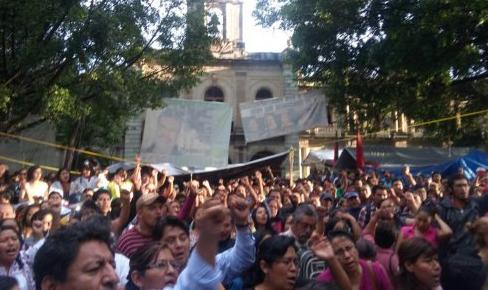Spanish state
First big workers’ protest against Zapatero’s austerity plan
17/06/2010
On June 8 the first big protest against the austerity measures announced by Zapatero took place. Two and a half million public workers were called to a strike to protest against the 5% cut in their wages, against the freezing of pensions and the elimination of social benefits. This is the beginning of a long struggle to defeat the government of the PSOE [Socialist Party] and the rest of the bosses’ parties that are betting on carrying out an historic austerity plan on our shoulders. The same day, the economics minister admitted that new and imminent attacks were being prepared, like increasing the retirement age and reducing pensions in the future.
Until now, the two long years of crisis had not provoked big workers’ protests against the government. The bureaucratic leaderships of the Comisiones Obreras, CCOO, and the UGT [union federations] have maintained a criminal social peace in which millions of layoffs have taken place. However, Zapatero’s offensive, in line with the rest of European governments and the recipes of the European Union and the IMF, together with the growing dissatisfaction among the rank and file of the unions, have forced them to begin to break this alliance.
There was uneven compliance with the strike. Some municipal janitorial services, garbage collection, public transport and the Andalusian and Catalan television stations, that had blank screens for a good part of the day, led the way. In schools,especially in Andalusia and Catalonia, the strike was widely observed. The Madrid public health system also backed the strike massively, in spite of the abusive minimal services imposed [by the government] and a boycott of the protest by the company unions. In last place, as far as the strike was concerned, was the Basque Country, where, unfortunately, the nationalist unions did not join the strike because it was country-wide. A pernicious division that, at the same time, is nurtured by the leaderships of the Comisiones Obreras and the UGT, and the disgraceful support for the persecution of the Basque independence movement.
Throughout the day, there were picket lines, occupations of public offices, blocking traffic, rallies and demonstrations in all the provincial capitals. In Barcelona and Madrid, among many rank and file groups and groups of leftist unionists, a real clamor was raised, demanding the general strike of all groups to demolish the cutbacks and the labor reform that the government is preparing for mid-June. Big participation by anti-government unions (like the CGT) is a big symptom of the fact that tendencies can develop that go beyond the weak measures of the leaderships of the majority unions.
June 8 was a big first step, when the willingness of many groups of workers to fight was partially shown. The presence of private-sector workers, young workers, unemployed or with precarious jobs, was also obvious in the demonstrations. The announced continuation of attacks by the government is drawing a very different horizon from that of the first two years of the crisis. In the coming weeks and months, it is likely that the streets will again be occupied by thousands of workers, and we will even go to the first 24-hour general strike against Zapatero.
From Clase contra Clase, we have been promoting the June 8 strike call, at numerous picket lines like that of the Zaragoza city transport of the occupation of the ministry of education of the Aragón government and marching shoulder to shoulder with the union left in the demonstrations at Barcelona and Zaragoza. All that while raising the politics of imposing on the leaderships of the Comisiones Obreras and the UGT ending the dialogue with the government and working out a plan of struggle that starts with an immediate general strike. To guarantee a combative struggle to the end, we believe that we of the union left and those groups of workers opposed to the policy of the bureaucracy must promote workplace assemblies, the election of delegates and mechanisms of workers’ democracy that allow the struggle to be led by the rank and file. Only in that way will we be able to carry out a fight to make the capitalists pay for the crisis, based on attacking their interests and profits. It is time to take up lost traditions again, in order to end the bosses’ and bankers’ government and impose a government of the workers and groups of the people, which alone can bring a workers’ solution to the crisis.
